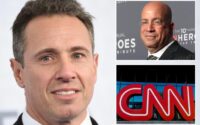His business skills put to the test
Not all great business visionaries make great business leaders. Steve Jobs was certainly a great visionary, but his business skills were so lacking, he was booted from the company he created. He returned to Apple years later and built a much better mousetrap, having spent time in those intervening years learning from his mistakes.
In the coming months, we will be able to determine if Elon Musk, the Tesla CEO and now owner of the influential but unprofitable social media behemoth Twitter, has the ability to rise to Jobsian heights.
It won’t be easy for many reasons, including the most formidable obstacle to Musk’s success: Musk himself.
I know what you’re saying: Hasn’t Musk already proven himself to be the next Steve Jobs? At last count, he’s the world’s richest man. He built Tesla into an iconic brand in the growing electric-vehicle market while dabbling in a myriad of other successful pursuits.
Maybe, but his net worth has declined dramatically in the past six months as investors began to poke holes in Tesla’s business model and Elon’s mastery of simple investing.
Investor Doug Kass calls Tesla “the most overvalued company in history.” For good reason: Based on its market cap of more than a $600 billion, its profit should be multiples of the roughly $5.5 billion it made last year.

EV subsidies, Environmental Social Governance investing trends, and lots of free money by the Fed contributed to Tesla’s stratospheric valuation. Increased competition in the EV market now pressures Tesla’s shares in the opposite direction, as do higher interest rates.
With a likely GOP House, ESG (and those Tesla subsidies) will come under scrutiny because Republicans believe it pushes left-wing politics and oil companies to stop drilling.
‘The worst buyout.’
Which brings us to Musk’s purchase of Twitter. Like Kass, analyst Dan Ives gives this Musk venture a negative superlative, describing it as the “worst LBO [leveraged buyout] in the history of tech.”

The world’s richest man didn’t want to or maybe couldn’t afford the entire $44 billion price tag on his own, so he borrowed — a lot, around $13 billion. The Musk-owned Twitter — which rarely makes money and has negative cash flow — will see its annual debt expense grow exponentially to around $1 billion.
Musk, by most estimates, overpaid by anywhere from $20 billion to $40 billion for his new toy, which is why he’s firing people — even those he needs to keep the social media site up and running.
How could such a great executive do that? The reason was best explained to me by a banker who knows Musk well.
“Elon doesn’t read balance sheets and financial statements,” he said. “It’s all gut for him.”
“Gut” told him to buy Twitter, waiving due diligence about the company’s annoying bot problem, as markets and his own currency (Tesla stock) began to correct. Musk wanted to own the global public square. Sounds great until the bill came due and his gut told him to try to renege.
Not sure what his gut said when he suddenly reversed course again, but I’m pretty sure his legal team told him to ignore it because he was facing a humiliating defeat in Delaware’s Chancery Court.
Musk is still very rich — he’s worth around $200 billion. But much of it is in Tesla stock, which has crashed about 50% from its highs. His net worth has declined by around $100 billion in recent months.
Add it all up, and you get the feeling that Elon has a ways to go before he is next Steve Jobs.
Still ‘Ape’ for AMC
AMC Theaters is a money-losing movie-house chain, but it has a cult-like investor base. They call themselves the “Apes.” They love the stock despite the company’s funky balance sheet (debt, and losses) and plans to dilute their holdings with new preferred shares.

Their continued allegiance to the stock is worthy of Freudian analysis (which I won’t get into here) because it’s based on a easily disprovable conspiracy theory that’s prominent on message board and social media.
Basically, the Apes believe if they hold the stock long enough, at some point shares will rise. Greedy Wall Street hedge funds who want to destroy AMC for no apparent reason are betting that shares will decline through short sales. Because of the Apes’ strategy, the hedgies will be forced to cover their bets and shares will soar to $100 or even $1,000.
So far, just the opposite has happened. About 90% of AMC’s value has evaporated since its highs of last year. Continued operating losses for third quarter and a weak slate of movies mean the stock will remain under pressure. AMC shares popped Friday on some Ape-inspired euphoria over the strong box-draw of the latest “Black Panther,” but they were valued (preferred plus common) at a paltry $8.81.
Maybe that’s why company insiders, such as top executives, unloaded more than $100 million of AMC stock as the Apes were holding and buying.
Take CEO Adam Aron. Between November 2021 and early January 2022, Aron sold $43 million worth of his AMC shares at prices between $20 and $40, records show.
Aron is fond of telling the investing world how much he loves the support of his friends in the Ape community. It’s obvious why. Their irrational exuberance helped bail out the company from likely bankruptcy after its pandemic closure, and blunted the impact of streaming on ticket sales. Plus, they made him rich.


